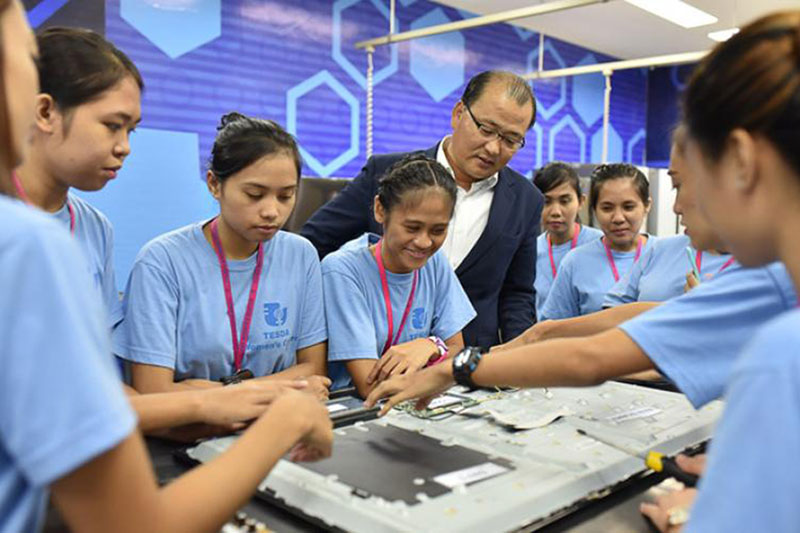Private sector involvement needed to ensure tech-voc graduates are job-ready

PROPOSED changes to the K-12 law include the need for increased private sector involvement in the Technical Education and Skills Development Authority (TESDA) to help make technical and vocational (tech-voc) course graduates job-ready, a congressman said.
“[TESDA] only has four industry boards now, I don’t think that’s enough,” Pasig City Rep. Roman T. Romulo, who heads the House basic education and culture panel, told BusinessWorld in a phone interview.
TESDA in August established industry boards in partnership with various private sector representatives to assess whether a student’s tech-voc skills will be enough to meet these sectors’ demands.
The industry boards include the Philippine Constructors Association, Inc. for the construction sector, the Tourism Industry Board Foundation, Inc. for the tourism sector, the IT & Business Process Association of the Philippines for the information and communications technology sector, and the Philippine Cacao Industry Association for the cacao sub-sector under agriculture.
TESDA also formed an industry board with the Semiconductor and Electronics Industries in the Philippines Foundation, Inc. to represent the manufacturing, semiconductor, and electronics sub-sector.
“The first step that [TESDA] should do is to form more industry boards,” Mr. Romulo said in Filipino. “The one who dictates what skills [a learner] needs is the industry.”
Under the proposed Education Pathways Act, a student who finishes Grade 10 can either proceed to senior high school to pursue a college degree or take a tech-voc course. The measure hurdled the House basic education and culture panel last month.
“If a learner, after completion of Grade 10, wishes to take the tech-voc track … we will have an upgraded TESDA that will take care of the curriculum together with industry partners,” Mr. Romulo told the committee on Oct. 18.
The measure “not only offers choice but also the promise of a more inclusive, flexible, and dynamic educational system that empowers every student, regardless of their background or circumstances,” Federation of Free Workers President Jose Sonny G. Matula said in a Viber message.
The unnumbered substitute bill also requires TESDA to facilitate on-the-job training and apprenticeship programs to be offered by industry stakeholders.
A student may also opt for the ladderized education program, where those who have completed a TESDA course and are already working are eligible to enroll in a college or university degree program.
Mr. Matula added that the bill should include courses in labor rights for both senior high and tech-voc students for improved awareness among workers.
Under the current law, Republic Act No. 10533 or the Enhanced Basic Education Act of 2013, it takes two more years of basic education — Grades 11 and 12 — before a student can earn a high school diploma. At the time, the Philippines was the only Asian country and one of three in the world with a 10-year basic education program.
TESDA recorded a total of 1.26 million enrollees and 1.23 million graduates last year, according to its 2022 annual report.
Terry L. Ridon, a former youth party-list lawmaker and currently the convenor of think tank InfraWatch PH, said the TESDA has yet to be fully developed to handle huge numbers of students taking the tech-voc route.
“The success of this measure is dependent on an all-rounded development of TESDA and its various private partners,” Mr. Ridon said in a Viber message. “Unfortunately, the tech-voc sector has not reached this level of development yet.” — Beatriz Marie D. Cruz



